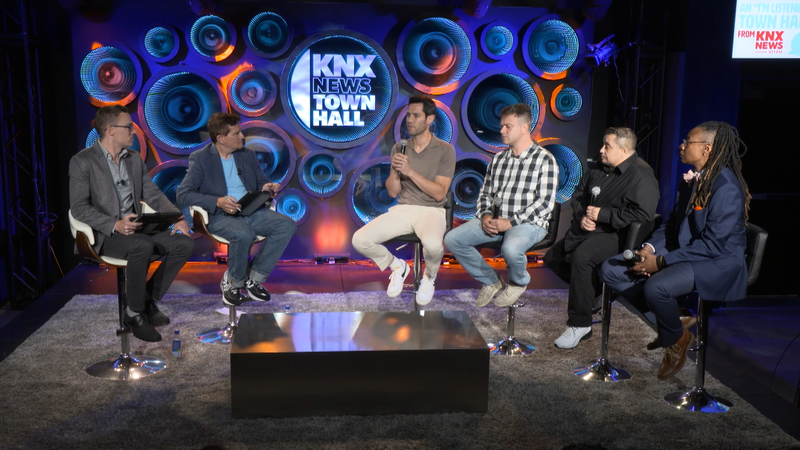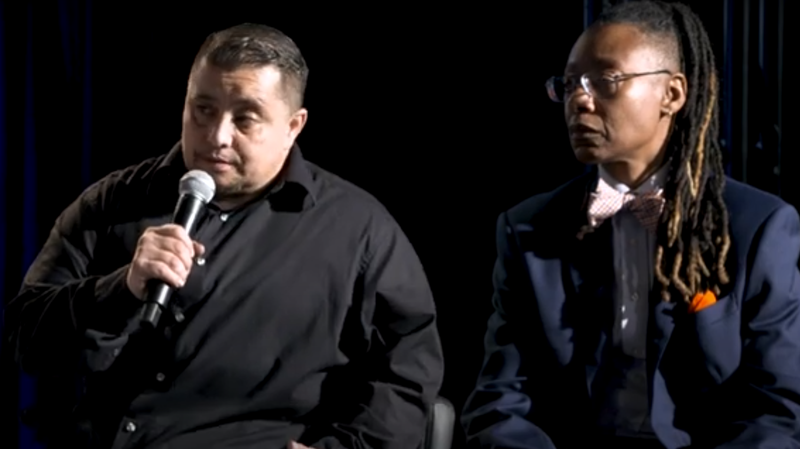
Each year, mental health awareness only continues to grow. Celebrities and public figures have opened up about their struggles. The number of people seeking care is steadily rising. And yet, the suicide rate in the U.S. is at a near-record high.
During KNX News’ “Awareness is Not Enough: An ‘I’m Listening’ Town Hall,” advocates said there’s still work to be done on an interpersonal level to reduce the stigma around mental health.
Tracey Cooper-Harris, a retired U.S. Army sergeant who now serves as a military veterans liaison, said it can be hard to ask people how they’re doing because we’re afraid to hear the answer.
“You’re opening up Pandora’s box,” she said. “And then once you get the answer, well, what do you do? How do you help them? … If we don’t know what to do, then now we feel bad, because we can’t help.”
Cooper-Harris said it’s particularly hard to talk about mental health in the military, where the mantra is “suck it up and drive on.” But the same sentiment can affect civilians in all walks of life.
“When I was on the road and dealing with things that I was pushing down, I wasn't talking about, I wasn't able to communicate them to anyone around me,” said Ryan Dusick, the founding drummer of Maroon 5. “Not that they didn't care. It was just, there was a stigma, you know, the stigma about being tough, you know, just not allowing yourself to be vulnerable.”
After a mix of physical and psychological issues forced Dusick out of the band, he went to rehab, then went back to school to become a licensed marriage and family therapist. He said the most important thing you can do for your loved ones is give them a chance to speak up.
“The advice I give to families at this point is just show that you care, and ask questions more than anything,” he said. And if somebody I know or somebody I'm working with is struggling, the best thing I can do is to show that I want to hear what their experience is.”

“One thing that we forget to teach a lot of our kids is how to cope with difficult situations and allow them to feel whatever they want to feel, because we shut it up,” said Anthony Rodriguez, co-founder of the Santa Barbara Response Network.
Rodriguez highlighted the importance of making space for open conversations in the workplace, where people are often afraid of admitting they need help.
“During COVID, everybody was struggling,” he said. “I brought up the fact that we should be able to have some time just to talk, just to let everything out and not be judged and not get fired for it.”
Rodriguez said the Foodbank of Santa Barbara County addressed employee burnout by giving the staff mandatory days off to do whatever they want, no questions asked.
“A lot of us feel like if we ask for a day off, we're gonna get fired, or they're gonna ask too many questions, or they're gonna think that we can't handle our situations or whatever is going on in our life,” he said. “If we need a day off, we should be able to feel like, okay, you know, I need a day off, and not be questioned about it.”
Whether it’s at home or in the office, Cooper-Harris said we can all be more proactive about showing the people in our lives that we’re listening.
“If you're checking in with a friend of yours and you're noticing something's off, ask, ‘Hey, I'm noticing you're looking a little down, is everything okay? Is there anything I can help you with?’” she said. “Sometimes it's just hanging out with them, just showing that you're there in that moment.”
Watch the full “Awareness is Not Enough” Town Hall here.
Follow KNX News 97.1 FM
Twitter | Facebook | Instagram | TikTok
